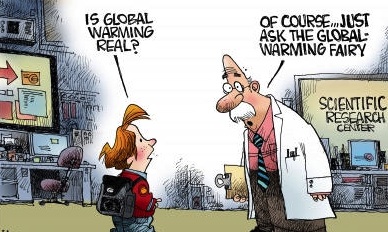Spurred on by trial lawyers and environmental activists, whose political support is crucial for any up and coming progressive, state and local elected officials have been trying to prove as a matter of law that the nation’s energy companies lied for years to their stockholders and to the American people about the possible impact of global warming.
They’ve been unsuccessful, largely because the charge is untrue — as several of those who’ve already brought these lawsuits have been forced by the facts to admit. Still, it all continues. Local governments in California, where energy taxes subsidize the out-of-control spending in which Gov. Jerry Brown and the Democrat-controlled state legislature engage with such abandon, recently sued 18 energy companies claiming the threat of rising sea levels in future years present a substantial risk to their communities.
The allegation of near-certain future harm caused by rising sea levels stemming from anthropogenic climate change is an old complaint made many times before. Former Vice President Al Gore famously (and incorrectly) predicted the polar ice caps would have by now all melted for the same reasons.
The average trial judge presumably lacks the scientific expertise and understanding of climate science needed to render judgment in such a case, where expert testimony must play a significant role. But judges forced to hear such cases might consider the Biblical admonition about removing the log from one’s own eye before commenting on a splinter in a neighbor’s. The plaintiff local governments in these cases have all, at one time or another, failed to disclose in their bond offerings many risks related to the potential damage that global warming might cause to their communities.
Some of these local governments even denied they had the ability to predict any risk related to rising sea levels or climate change, while others omitted any mention of the risks they laid out in the lawsuits against the energy companies. At least two of the complaining municipalities actually reassured investors they were “unable to predict whether sea-level rise or other impacts of climate change or flooding from a major storm will occur, when they may occur, and if any such events occur, whether they will have a material adverse effect.”
The stark disparity between what these local governments alleged in their lawsuits and what they disclosed to their own bond investors hints that they, too, have systematically misled investors at least as much, if not more, than they allege the oil companies misled theirs.
ExxonMobil, one of the companies being sued, pointed out this very divergence between what these governments say and what they do to a Texas court. It’s hard to argue this is not relevant to the matter in which they now find themselves called to court in California to address. What the company wants (and should get) is the opportunity to force government officials to answer questions under oath. The stark differences between what the local governments are claiming in their legal briefs and what they told potential bond-buyers are significant enough to affect both the outcome of the case and the U.S. economy.
The merits of these lawsuits, of course, should not be taken too seriously. The whole business is just driven by lawyers looking to reach into the deep pockets of American industry, hoping for a potential big payday down the road. But as a matter of principle, the proper place to settle political and policy disputes like this is in the electoral arena, not a court of law. A proper judge would recognize the farce and toss this entire exercise in deep-pockets jurisprudence right back where it belongs.
